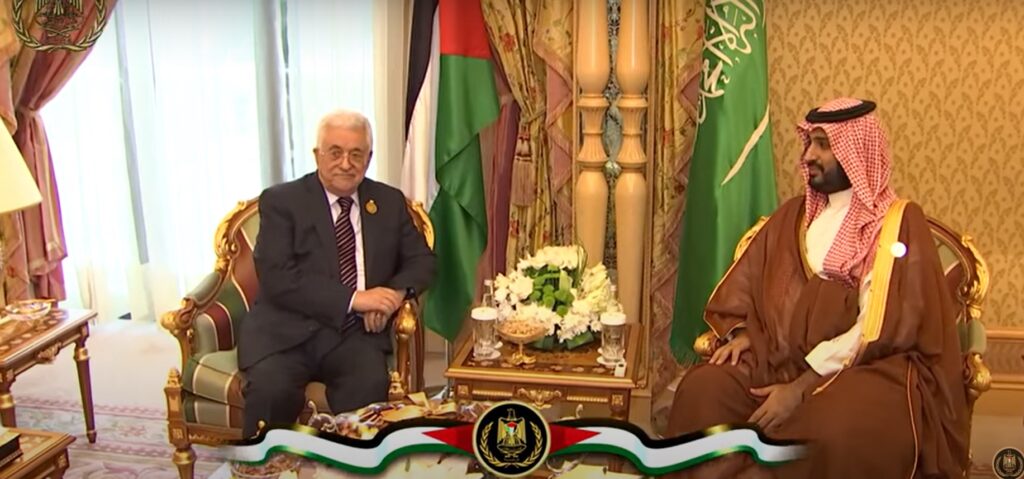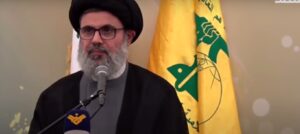Recent statements by Saudi Crown Prince Mohammed bin Salman to Fox News and reports from diplomatic and intelligence sources indicate a practical departure from the Arab peace initiative in favor of a normalization agreement with Israel.
This shift occurs even though an independent Palestinian state has not been established.
Originally conceived by King Abdullah bin Abd Al-Aziz, the Arab Peace Initiative was introduced in 2002 and later officially declared as such.
However, Israel refused negotiations and maintained that normalization with Arab countries is not contingent on a political agreement with the Palestinians.
This stance paid off, culminating in the “Abraham Accords” signed by Israel with the United Arab Emirates, Bahrain, Morocco, and Sudan in 2020.
King Salman bin Abdulaziz, the current monarch of Saudi Arabia at 88 years old, has resisted signing a normalization agreement with Israel during his reign, adhering to the Arab peace initiative.
However, due to his advanced age and health issues, his son, Crown Prince Mohammed bin Salman, appears to be managing the kingdom’s affairs and is making decisions regarding a normalization agreement with Israel as part of a broader strategic arrangement with the US.
Saudi officials state that this new deal signifies Saudi Arabia’s willingness to forgo immediate implementation of the Arab peace initiative in exchange for signing a joint defense agreement with the US.
This includes plans for a nuclear reactor on Saudi soil for “peaceful needs” and the acquisition of advanced weapon systems from the US.
Rather than the Arab peace initiative, Saudi Arabia is now prepared to settle for Israeli actions that preserve the two-state solution, strengthen the Palestinian Authority’s position, and improve the day-to-day life of Palestinians.
Crown Prince Mohammed bin Salman has formulated a new strategy for Saudi Arabia’s foreign relations:
- Saudi Arabia fears Iran’s military strengthening, particularly as it approaches nuclear capability.
Concerns include the possibility of Iran developing nuclear weapons and the uncertainty of the diplomatic ties’ sustainability, mediated by China.
Saudi Arabia still grapples with the trauma of the 2019 attack on its oil facilities by Iran. Crown Prince Mohammed bin Salman recalls how President Trump refrained from taking strong measures against Iran following the attack.
- Saudi Arabia aims to establish itself as a regional and military power in the Middle East, maintaining positive relations with major powers like the US, Russia, and China.
- Strengthening Saudi Arabia’s deterrence capacity against Iran while reducing conflicts with nations, especially Yemen, with which it has ongoing disputes. Saudi Arabia is currently in negotiations with Houthi rebels to end the war in Yemen.
- Saudi Arabia works towards achieving regional security and peace to realize Crown Prince Mohammed bin Salman’s socio-economic “Vision 2030.”
For Saudi Arabia, the paramount objective remains ensuring its security through a defense alliance with the US. Normalization with Israel and the Palestinian issue rank lower in Mohammed bin Salman’s order of priorities.
The new policy of the Saudi Crown Prince is to diversify Saudi Arabia’s relations with countries across the world and avoid over-reliance on a single alliance.
The Palestinian Authority (PA) contends that Saudi Arabia prioritizes its security interests primarily.
Even during President Trump’s tenure, Saudi Arabia showed willingness to accept the “Deal of the Century,” despite strong Palestinian opposition.
PA Chairman Mahmoud Abbas comprehends the situation well and has directed PA officials not to publicly comment on Saudi Arabia’s deal with the US and Israel.
Instead, he focuses on securing substantial budgets from Saudi Arabia to bolster the PA.
Saudi Arabia, being the wealthiest Arab country and wielding considerable influence in the Middle East, aims to become not only affluent but also a formidable and independent security force.
Crown Prince Mohammed bin Salman aspires for Saudi Arabia to lead the moderate Sunni camp confidently, unencumbered by concerns about its Shiite rival, Iran.
In his view, the Palestinians can afford to wait, acknowledging the internal political challenges within Israel and the current limitations of the Palestinian leadership in achieving a historic peace agreement with Israel.



